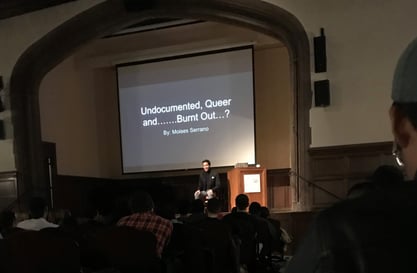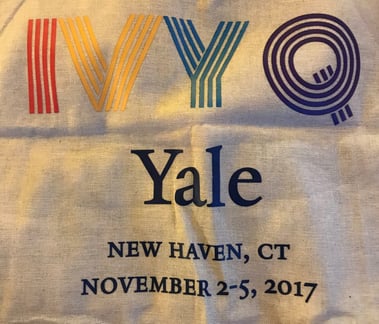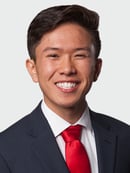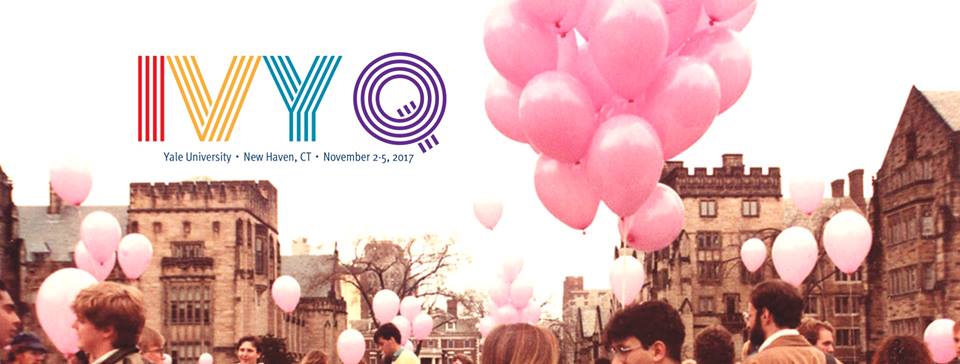This year has been an incredible year filled with new experiences. First of all, this fall, I packed my bags and flew across the country from Arizona to Connecticut to begin a new chapter in my life: college. As I have gotten settled in, I have noticed that no matter what your interests are, there is always an activity or group for you to join. Recently, one of the events I got to participate in was IvyQ. On the weekend of November 4th, Yale University hosted an intercollegiate conference that brought together queer students from numerous different colleges - even beyond the Ivy League - for a weekend of workshops, lectures, and discussions. With such a plentiful variety of events to attend, it was difficult to experience everything, but nonetheless, I gained valuable insight at each of the different activities I attended.
First, I got to participate in a workshop on the role of identity as it regards gender and sexuality in international peacebuilding. We explored how identity offers potential for individuals to find common ground and build relationships during times of peacemaking. Along with this, I attended a workshop with Professor Gregg Gonsalves about the history of AIDS activism in the United States, where we explored the history of groups like ACT UP and their role in in advocating for increased AIDS research, more education on safer sex, and more accessible pricing for HIV medication. I also got to sit in on a lecture and Q&A with Moises Serrano on being undocumented, queer, and the prevalence of activist burnout, especially in our present-day environment. This was particularly unique because it often seems like there is a pressure on students and individuals to engage in activism at all times. Serrano’s talk discussed the importance of self-care, mental health, and “recharging” not as an alternative, but as a supplement to activism.

Moises Serrano presenting at IvyQ
There were many learning opportunities throughout the conference, but overall, IvyQ served an even greater purpose for all in attendance. IvyQ allowed students to explore and study LGBTQ+ history and issues when they may not have the opportunity to do so within their own schools. It also served as an avenue for students to get their feet wet if they plan on taking a class regarding gender or sexuality studies. I went into college unsure of what I wanted to study, but IvyQ really allowed me to acquire some insight into queer issues that I may not have been exposed to otherwise.
Even more important to me was IvyQ’s function as a queer space for students. Though some schools offer resources for LGBTQ+ students, IvyQ created a unique opportunity for students to engage in academic dialogue about the issues and obstacles they have faced in the past, while knowing that they are also in a safe, respectful space with others that may have gone through similar experiences.

For me, the space that IvyQ offered was reminiscent of my time in Los Angeles with Point Foundation. During my stay in Los Angeles, Point stood out as an experience I have never had before in my life. It felt so incredibly liberating, safe, and accepting to be among other queer individuals, knowing wholeheartedly that although we may not have gone through the same experiences, we share some common ground in our identities. IvyQ offered a very similar feeling; during my time in the workshops, I had this newfound sense of safety and security, knowing that my identity was valid. I vividly remember someone mentioning, “IvyQ has made me feel more comfortable than I have felt in a really long time. I can’t remember the last time I felt this comfortable.” It is this sensation that captures the absolute importance of queer spaces. As queer people, we do not necessarily need to exclusively live in queer spaces, but they can serve as a means for us to recharge. College can be an overwhelming experience, and it can be even more difficult when we live in a society that isn’t always accepting of our identities. Queer spaces give us solace in the company of each other; IvyQ and Point Foundation are just two instances where queer people are brought together in an environment where we can always feel safe, supported, and loved.
Read about Point Scholar Kyle Ranieri's experience organizing IvyQ here.
 This post was written by Wells Fargo Point Scholar Aiden Lee.
This post was written by Wells Fargo Point Scholar Aiden Lee.
In high school, Aiden founded Peer Diversity, a group that works with the Anti-Defamation League to train student leaders to identify and combat discrimination, hate, and bias. He is now a student at Yale University, where he plans to study ethics, politics, and economics while continuing to be an advocate for equality and justice. Read more about Aiden here.

